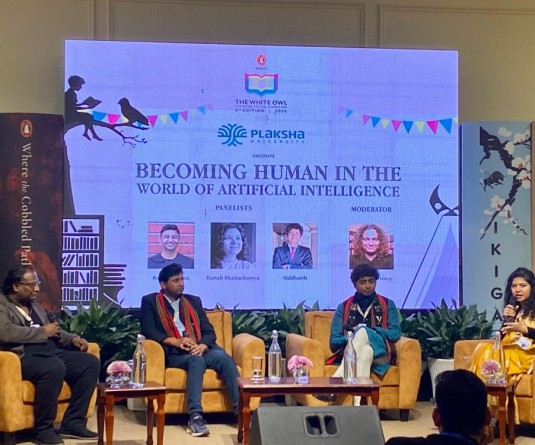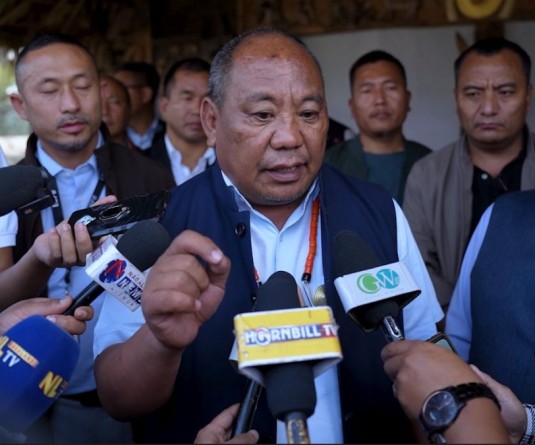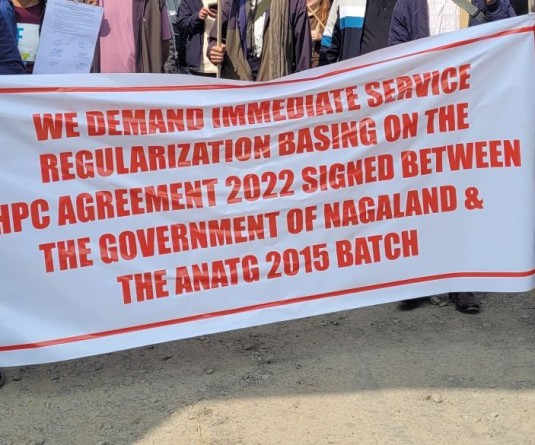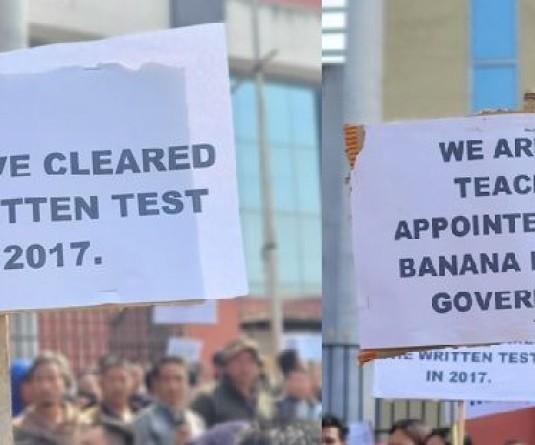
Morung Express News
Kohima | June 28
Chümoukedima Town Council (CTC) and Dimapur Municipal Council (DMC) were awarded as the ‘Cleanest ULBs’ during the first-ever state function of the “Cleanest ULBs and Wards Awards- 2022 Nagaland” held at Capital Convention Center, Kohima on June 28.
The two ULBs were awarded under category-I comprising of four ULBs namely Kohima, Dimapur, Mokokchung and Chümuokedima and received cash prizes of Rs 1.50 lakh and Rs 1 lakh respectively along with citations.
Under the category-II comprising of 15 ULBs, Pfutsero Town Council (TC), Phek TC and Tuli TC were awarded with cash prize of Rs 1 lakh, Rs 75,000 and Rs. 50,000 along with citations.
Aboi TC, Chiephobozou TC and Mangkolemba TC were awarded with cash prize of Rs 1 lakh, Rs 75,000 and Rs 50,000 along with citations respectively under category-III consisting of 20 ULBs.
The cash prizes and citations were given away by the Chief Minister, Neiphiu Rio and Advisor, Urban Development & Municipal Affairs, Dr Neikiesalie Nicky Kire.
The Chief Minister also released the assessment report.
Under special category awards, best performance in terms of efforts was awarded to Tuensang TC and Aghunato TC while ULBs with best innovative solutions given to Pfutsero TC, Chumoükedima TC and Phek TC.
Tuli TC, DMC and Atoizu TC were awarded under ULBs with best community mobilisation.
To promote the noble idea of encouraging the ULBs and citizens towards clean and hygienic environment, it was informed that the State Government conceptualised the idea in June 2019 but could not be held due to the COVID-19 pandemic.
Why Cleanest awards?
Principal Secretary, Urban Development & Municipal Affairs, I Himato Zhimimo said that the main objective of the award was to encourage healthy competition amongst the ULBs and also promote community participation to improve sanitation through collection action and to espouse the principle of ‘my waste, my responsibility.’
In its note, the Committee on Cleanest ULBs & Wards stated “this competition is a first of its kind in the state and the task to formulate the parameters and indicators to assess the performance of the ULBs was a challenge.”
Another challenge, it pointed was as the ULBs were not equally equipped in terms of resources, workforce and machineries. Hence, the ULBs were divided into three categories depending on various criteria with common parameters on garbage vulnerable points, utilisation of plastic waste, elimination of single-use plastics and public contributions.
Categorisation
The first category of award was based on ULBs with a waste management system in place and assessed under different 13 parameters, while the second category also falls under ULBs putting a waste management system in place and the third under ULBs aiming to introduce a waste management system. They were assessed under different 9 parameters.
A positive outcome of this competition as stated by the Committee which has brought a paradigm-shift in the towns saw the active participation of the citizens led by the responsible and citizen-centric administrators.
While appreciating the government, it has requested for continuation of the programme to promote such campaign ‘as it galvanizes civic sense into a people’s movement towards clean sanitation and better environment as a way of life.’






